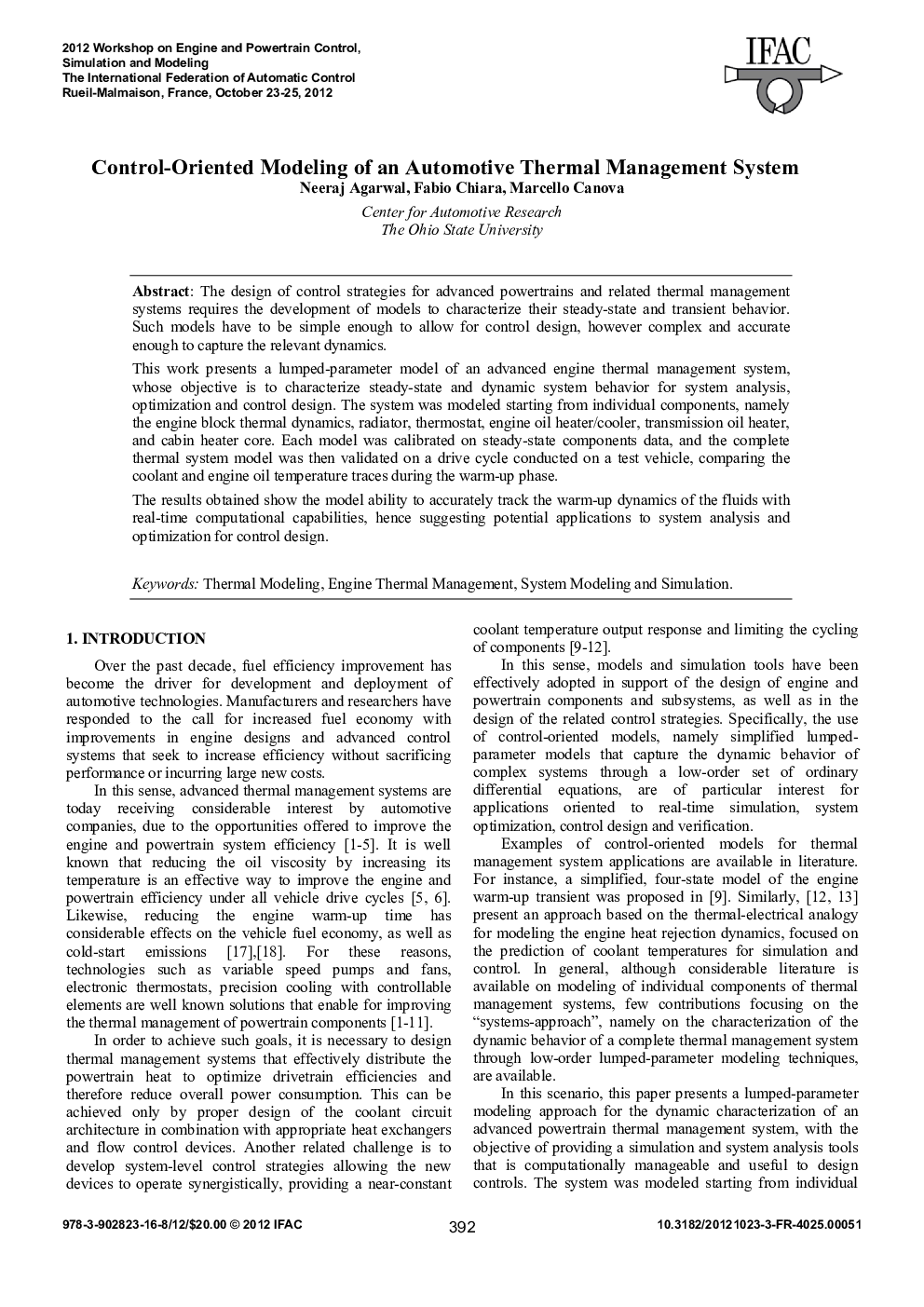| Article ID | Journal | Published Year | Pages | File Type |
|---|---|---|---|---|
| 713842 | IFAC Proceedings Volumes | 2012 | 8 Pages |
The design of control strategies for advanced powertrains and related thermal management systems requires the development of models to characterize their steady-state and transient behavior. Such models have to be simple enough to allow for control design, however complex and accurate enough to capture the relevant dynamics.This work presents a lumped-parameter model of an advanced engine thermal management system, whose objective is to characterize steady-state and dynamic system behavior for system analysis, optimization and control design. The system was modeled starting from individual components, namely the engine block thermal dynamics, radiator, thermostat, engine oil heater/cooler, transmission oil heater, and cabin heater core. Each model was calibrated on steady-state components data, and the complete thermal system model was then validated on a drive cycle conducted on a test vehicle, comparing the coolant and engine oil temperature traces during the warm-up phase.The results obtained show the model ability to accurately track the warm-up dynamics of the fluids with real-time computational capabilities, hence suggesting potential applications to system analysis and optimization for control design.
